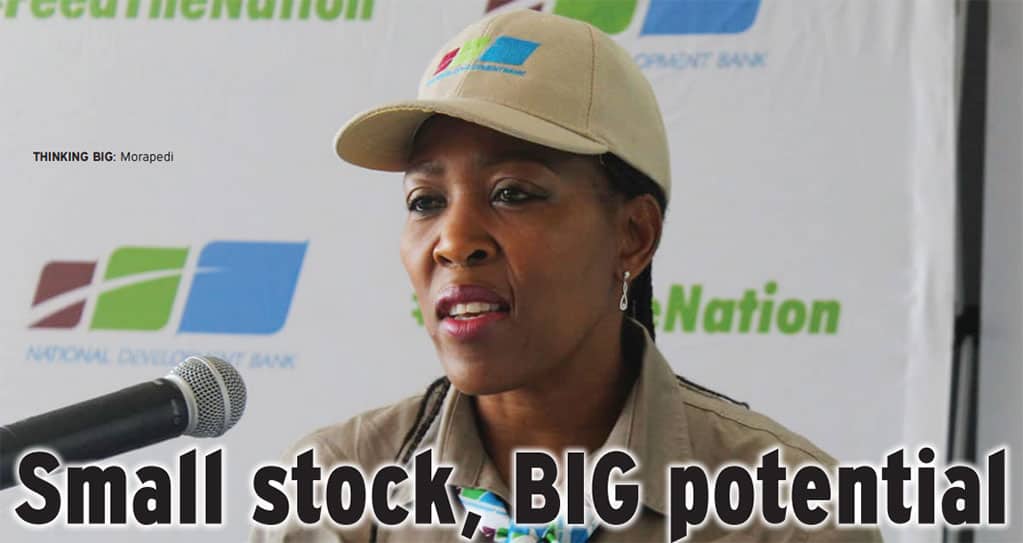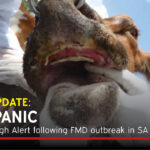Although Botswana is world famous for its beef, and rightly so, small stock has failed to entice stomachs in the same way.
This could be about to change, however, with more and more farmers looking to cash in on the sector’s growing potential.
Indeed, as far as National Development Bank (NDB) Chief Executive Officer (CEO), Lorato Morapedi is concerned, goats and sheep could one day moo-ve past cows as the people’s meat of choice.
Addressing stakeholders at a gathering in Gaborone, held under the theme, ‘Smart Farming – the key to unlocking the future of Agriculture’, Morapedi noted the domestic demand for small stock meat has increased noticeably in recent years.
“This development has motivated many farmers to venture into this sub-sector. Moreover, export markets for small stock meat from Botswana are being opened up, and there are abundant opportunities in this sub-sector, both locally and globally,” she pointed out.
Despite this upsurge in popularity, Morapedi stressed there was still plenty of room for improvement.
“According to Statistics Botswana, the current national population of sheep and goats is only 264, 962 and 1, 605, 642 respectively – in both cases, well below peak historical herd sizes. A recent study on the Botswana small stock sector carried out by the International Fund for Agricultural Development (IFAD) has revealed that productivity in the sector is low.”
Pinpointing where the sector is falling short, the CEO said most small stock are kept in unfenced farms with little active management, while herds are not managed with commercial objectives in mind.
“Off-take rates have been estimated at around seven percent, compared to the international best practices of around 33 percent. Domestic markets do not pay higher prices for higher quality meat, resulting in little incentive for small stock farmers to improve their productivity,” she added.
Nevertheless, Morapedi remains adamant that with external market opportunities rife, the sub-sector can play a leading role in growing Botswana’s exports.
“The President has tirelessly marketed our small stock meat in other countries. These efforts have indeed borne fruit, as evidenced by the duty-free market access quotas secured in Saudi Arabia and Norway,” she said.
To reach the same international standing as Botswana beef, Morapedi admitted the small-stock industry requires transforming.
“To successfully penetrate export markets, it will be critical for the industry to transform and achieve larger scale, improved productivity, and higher and more consistent standards of quality. Penetrating these markets will require that we address supply constraints, to ensure quality, quantity and competitiveness of our products,” she concluded.
For his part, NDB Board Member, Gerald Nthebolang stated that in the past the sector has largely been marginalized, overshadowed by its more successful big brother.
“As a sub-sector small stock has been largely ignored, without any notable small stock event where farmers can acquire knowledge around improving their flock. Most events around small stock are all about auctions, in which farmers are interested in selling the animals they have. However, in order to get the best returns, there is a need to invest in knowledge around small stock production,” said Nthebolang.
(Issue V1229 FRIDAY 24.12.2021)


















Hello, can’t we have specific funding focusing on the sector so as to speed up our production for the international market ( other than bo “Ntlhatlose ko Morakeng” those are small money’s for commercial farming.